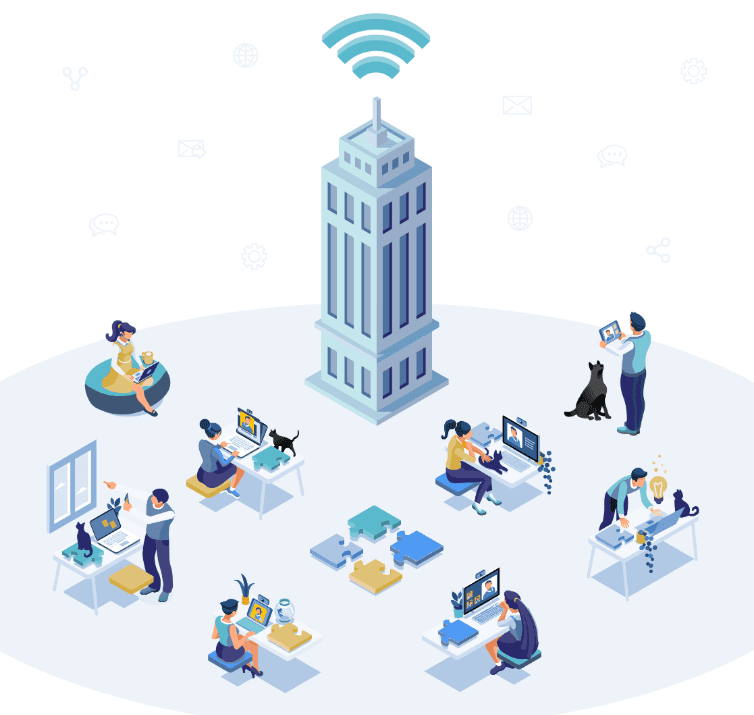Technology and your need to keep up with it to attract employers is an ever evolving race. As communication methods grow, the ability to access information and innovations accelerate, scaling your skill set also needs to adapt.
If you work in technology, you want to be as attractive to employers as possible. This means acquiring and honing the skill sets that are most in demand for technology employers.
There is no way for us to comprehensively cover all courses available to you in this blog, but what we can do is provide you the resources and some suggestions to keep your portfolio as strong as possible.
Let’s first look at what skill sets are the highest in demand.
Top Technology Skill Sets
According to CompTIA, the best tech-related skill sets to have on your portfolio include the following.
Infrastructure
- Networking – A network is foundational for every business, so a working knowledge of networking is crucial.
- Cloud Computing – Cloud computing makes resources available on-demand while storing them off-site at another location.
- Technical Support – This is support for all manner of technical issues and problems that can arise with a computer network.
- Linux – Linux is a popular open-source operating system used frequently in business and manufacturing environments.
Development
- Programming Languages – These are algorithms that give computers instructions on how to perform certain tasks.
- User Experience (UX) – This is the experience a user encounters when interacting with a product, service, or system.
- Machine Learning – This is a form of AI where machines use data sets to improve how they respond and perform tasks without being specifically programmed.
- Quality Assurance – Quality Assurance is all the efforts taken to ensure that a product or service delivers as designed and promised.
- Mobile Application Skills – Mobile applications are software programs designed to be used on mobile devices to enhance user experience and versatility.
Cyber Security
- Risk Analysis – This involves determining, measuring, managing, and reducing risks that could cause negative impacts.
- Cyber Security Analytics – This is the practice of analyzing computer networks for possible threats, attempts at intrusion or data theft, and measures to prevent such acts.
- Penetration Testing – Penetration testing is the authorized attempt to hack into a computer network or system for the purpose of discovering vulnerabilities.
- Compliance – Compliance is the work of a business to ensure all regulatory requirements are followed in specific practices that are governed by official outside bodies.
Data and Analytics
- Database Administration – This involves maintaining database software and storage, including backups, upgrades, security, and performance monitoring.
- Data Analytics – Data analytics seeks to discover useful information from data sets to support sound decision making.
- Data Visualization – This involves creating and using visual representations of data to enhance understanding and application of data.
- Data Science – This is the overall discipline of using scientific methods and practices to harvest facts from unstructured data and collate it for better understanding and use.
- Big Data – This term refers to the use of predictive analytics, user behavior analytics, or certain other advanced data analytics methods that extract value from large data sets.
Additional Professional Skills
- Project Management – This involves leading a team or teams to achieve project goals within a set of given parameters.
- Automation – Automation involves using a wide range of technologies that reduce or eliminate human effort in a set of given tasks.
- General Business Skills – These are general skills required in the operation of any business, including accounting, finance, marketing, and other related skills.
Online Organizations Where You Can Acquire Tech Skills
Where do you go to acquire skills to keep you attractive to employers? In the past, the simple answer was college. This has undergone dramatic change. You don’t necessarily need a college degree in technology to become good at technology skill sets. The courses and information exist and are accessible to make you into a professional in many areas. There are plenty of certification programs available to take you to the next level. Here are just a few:
- Udemy Business – Udemy Business is a global marketplace for acquiring and sharpening all manner of technological skills. Real-world experts teach over 16,000 courses in 14 different languages to help your team gain the skills they need for the future – today.
- Coursera.org – Coursera offers online courses and degrees in a variety of disciplines, leading to certifications, degrees, and other professional ratings. Online courses are provided by leading businesses and universities, ranging from one-day courses to graduate-level degree programs.
- Edx.org – EDX offers opportunities for online learning that range from short courses to bachelor and master degrees in a wide variety of technical disciplines. All courses are offered by leading universities.
- Alison.com – Alison offers free online courses in over 4,000 subjects that lead to certifications and degrees. This is the ideal place for the individual learner to begin.
This is by no means a comprehensive list, but it will get you started on your journey to gain training and knowledge to take your resume and skills to the next level.
Interested in Working with MHO?
MHO continues to expand into new and growing markets, and that means we periodically need new team members. Even if we do not have any current job postings, we’d like to hear from you! Send your resume submission to careers@mho.com or contact us online for more information.






